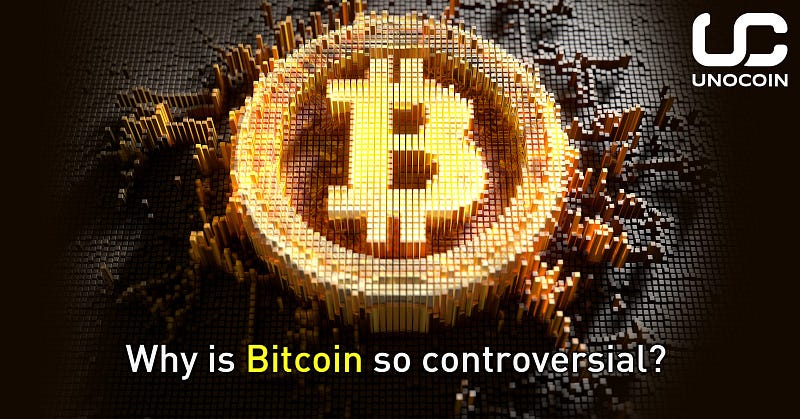
Bitcoin is a peer to peer, decentralised cryptocurrency, the first of its kind. Envisioned and designed as a better alternative to fiat money that is secure, anonymous and beyond the control of the state, bitcoin didn’t catch on beyond the technophile community in its early years. Following years of consistent performance and clear demonstration of its superiority over fiat money, bitcoin is now being widely adopted by both commoners and financial institutions alike. Here’s a look at the controversies that have dogged bitcoin and how bitcoin overcame them.
Silk road and dark web
Following its creation as an anonymous cryptocurrency, bitcoin caught the imagination of an unlikely community — drug dealers and drug users. Bitcoin became the preferred mode of payment on murky deep Web sites and online marketplaces dealing in drugs, thanks to the anonymity it afforded to those dealing in drugs.
Until 2013, bitcoin was used more by drug dealers and other shady elements than the law-abiding mainstream. A study commissioned in the fall of 2013 suggested that bitcoin had outgrown its association with the drug trade and was being mainly used to pay for legal goods and services. From then until now, adoption of bitcoin by people has only grown exponentially and today, bitcoin is well past its historical association with drugs and crime.
Mt Gox outages and hacks
Mt Gox was the leading bitcoin exchange until it was forced to close in early 2014 following a string of hacks and loss of bitcoins from its hot wallet. In June 2011, a hack leads to manipulation of the asking price for bitcoin resulting in the sale of bitcoin at prices as low as one cent. In 2013, Mt Gox went offline after the site witnessed unprecedented traffic following positive media coverage. In the latter part of 2013, Trade Hill, the second most popular exchange after Mt Gox, downed its shutters dragging investor confidence down.
It was almost the death knell for bitcoin when in February 2014, Mt Gox was hacked into and 850 thousand bitcoins were stolen. Though Mt Gox managed to retrieve 200 thousand bitcoins, investor confidence slumped as Mt Gox filed for bankruptcy and initiated liquidation proceedings. Many predicted the end for bitcoin but three and a half years later, if anything, bitcoin has only become more popular and mainstream. People now know that bitcoin is a robust viable alternative currency and that the exchange hacks had nothing to do with security flaws in the cryptocurrency itself.

Opposition to decentralisation
Governments worldwide manipulate the economy with their monetary and fiscal policies. A central bank decides how much money to print and how much to put out in circulation. The value of money depends on the size of the economy and the amount in circulation. Thus, an external agency determines the value of the money you hold and mismanagement can lead to grave crises as a recession. Bitcoin is an answer to centralisation and takes away the power to regulate money from a centralised authority. Thus, it’s a pure market currency. This is disliked by governments as they stand to lose control over currency if people adopt bitcoin.
Bitcoin is not yet viewed as a significant threat to fiat money at the moment, but governments are noticing bitcoin’s rapidly rising acclaim and some are trying to clamp down on the currency’s use. Recently, China banned all bitcoin exchanges and speculation is afloat that China may soon debar its citizens from dealing with bitcoins in any way whatsoever. But thanks to bitcoin’s nature as an anonymous, peer to peer currency, any transaction with bitcoins won’t risk incurring the wrath of the government as the encryption effectively subverts government surveillance efforts. Further, some other countries like India plan to release their own closed cryptocurrency, albeit one that is centralised and not anonymous.
Contentious legal status
This is a vexatious question that governments have had to contend with. Is bitcoin a commodity or virtual currency or a digital collectible asset? Should bitcoin be taxed as a commodity or be treated as a means of transacting (virtual currency)? While some like Russia, United Kingdom, and the European Union recognise bitcoin as a virtual currency out of the ambit of capital gain taxes, the United States of America and Israel treat bitcoin as a commodity for taxation purposes. India and China still haven’t recognised bitcoin as a currency/commodity and its legal status are unclear in these jurisdictions though governments of both countries have declared that citizens are free to deal with bitcoins as they deem fit. Japan has passed a bill recognising bitcoin as legal tender.
There are doubts with regard to the enforceability of tax laws. To resolve this, bitcoin holding disclosures can be made mandatory and identity of tax evaders can be unmasked with identifying personal details filed with bitcoin exchanges and other sites whenever transactions with bitcoins are made on the portal.
Fork and new blockchain
A fork is a branching out of bitcoin into two different cryptocurrencies. Essentially, the blockchain branches off into two. This may be pre-planned, as in tweaking the source code to improve bitcoin or could occur inadvertently. In 2013, due to differences in two versions of bitcoin mining software, a fork came into existence which was resolved after users were told to downgrade to the earlier software version. In August of 2017, Bitcoin Cash, a version that allows faster transactions than bitcoin, forked out from classical bitcoin. But the value of bitcoin has remained unaffected even after the fork.
Though bitcoin has faced many a challenge, it has always come through with shining colours. As a decentralised currency fighting against the odds, bitcoin has established itself because of its underlying robust and secure mechanisms.

Also Read:
https://blog.unocoin.com/bitcoin-crashes-have-taught-us-one-important-lesson-62ff4e8f904c



